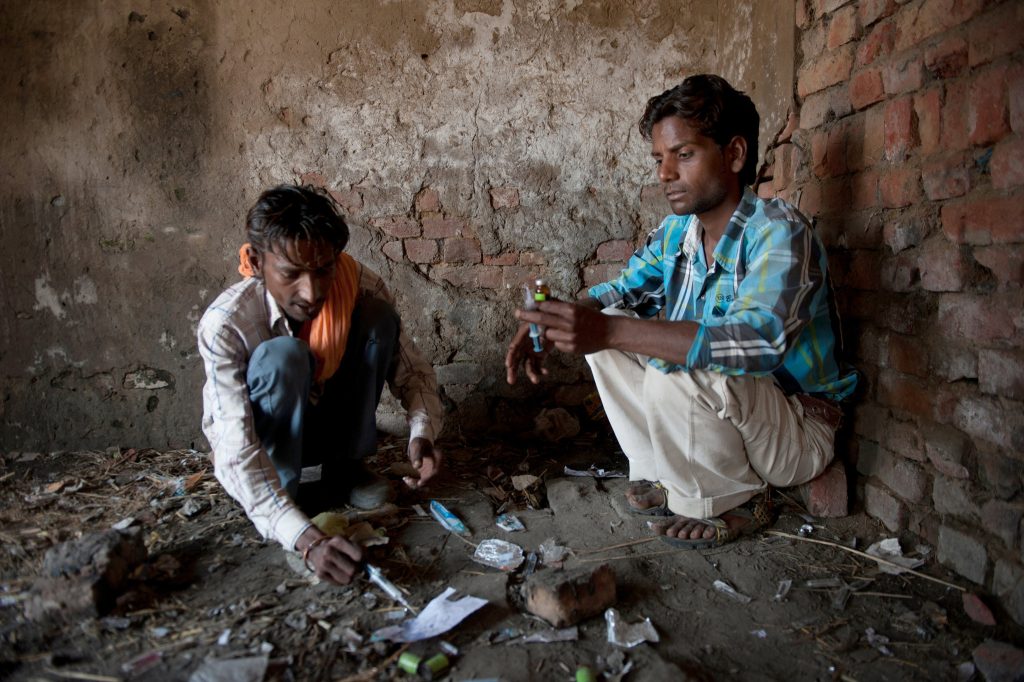What is spiritual therapy – How does that work?

India is well-known for its spiritual traditions such as yoga, meditation, reiki, pranic healing and so on. These practices are believed to play a role in the attendance of inner peace or “moksha prapti” and even “nirvana”. Does that mean I need to sacrifice everything, become a “sanyasi” or “sadhu” to attend this state?
Absolutely not, there is no rule that all the people who dress up as monks know about spirituality or even reached that state, some of them just take advantage of people’s belief, like telling that some pooja will help you get pregnant or solve your sexual problems and even involve in religious disputes, like in Paresh Rawal’s “OMG” or Amir Khan’s “PK”. Spiritual therapy is different from that.
Spirituality involves questions about your existence or the purpose of your life, as well as faith in powers beyond humankind – “what can I change about myself?”, “jeevan ka asli matlab kya hai?” or even “atma vichara”, but the ultimate goal of spirituality is to achieve internal peace and happiness. It may contain religious practices such as prayer, however, these religious beliefs can only aid in the healing process. Spirituality is broader than any religion.
What is spiritual therapy?
Spiritual therapy uses scientific approaches with an individual’s belief system and religion to help them deal with life’s challenges, such as understanding where one’s anger is coming from or resolving one’s relationship with others. People connect with spirituality in many ways: for some, music or yoga, while for others, dancing, meditation, and so on. Considering these preferences, spiritual therapists guide the individual towards healing. For example, if you prefer meditation, the session might involve guided meditation.
Religion and spirituality are rarely discussed in therapy, however, a spiritual therapist may question a person’s views in treatment and urge them to interact with others in the religious or spiritual community.
Spirituality vs Religion
Spirituality and religion may appear to be similar in certain ways, yet they are not. Religion is something that is practiced. It includes a sense of belonging, beliefs, and a set of rules. Meanwhile, spirituality is an ultimate goal shared by all religions.
A person’s spirituality is not always determined by their religious beliefs. Spirituality may be thought of as a person’s inner force. This inner force is an element of the person’s identity: it might be their views, values, ethics, or anything else that gives life meaning.
Religion and spirituality both have an impact on mental health. Spiritual healing frequently promotes healthy coping skills and mental wellness.
Spiritual therapy for non-religious individuals:
Religious treatment, such as Christian or Buddhist psychotherapy, may sound similar to spiritual therapy. Spiritual treatment, on the other hand, does not have to be religious in any way.
Spiritual therapy is any treatment that assists in discovering greater meaning and purpose in life, or in knowing the truth about oneself. In reality, an increasing number of people consider themselves spiritual without being affiliated with any particular religion. “I don’t believe in God, but I do know that I am connected to a greater spirit.”
It makes no difference if you are a Christian, a Muslim, or a Hindu. It makes no difference whether you are an atheist, an agnostic, or a gnostic. Spiritual therapy is to help assist individuals in making sense of the huge and deep changes they experience in their life.
Types of Spiritual Therapy:
Spirituality counseling is tailored to your specific issue, belief system, and other circumstances. For instance, if you suffer from distress or depression, you may be directed to mental healing, which focuses on determining the source of your pain. Common types of spiritual therapy include:
- Breathwork: includes carefully guiding the breath, There are several types of breathwork available nowadays. Some of them trace their roots back to the ancient yogic techniques of pranayama.
- Reiki: Reiki employs a practice known as palm healing or hands-on healing, wherein a “universal energy” is supposed to be transferred from the practitioner’s palms towards the patient in order to promote emotional or physical healing.
- Traditional medicine (Ayurveda): Indian medicine is used to address issues such as pain, poor family ties that result in physical symptoms, alcoholism, and so on. Aspirin, for example, is derived from cinchona bark, and the medications we use today are based on Indian herbal treatments.
What can I expect from spiritual therapy?
Spiritual therapy will not show instant miracles, like the person in the wheelchair will start walking in the movie “Trance”.
There is no method of treatment that can guarantee a cure, the same goes for spiritual therapy too. Yet, there is evidence that shows people benefitted from this therapy in the areas of mind, body, spirit, and overall quality of life.
- Improved relationship with religion or spirituality – for example, identifying and understanding your emotions – when you are upset at someone, you ask yourself where this anger is coming from, instead of reacting instantly.
- Understanding the sense of emptiness – Why am I lonely? What can I do to feel satisfied with myself?. For example – meditation helps you understand that you are enough and complete.
- Resolving conflict or negative thoughts about the religion in which you were reared – forced to follow specific religious rituals as a child, which left certain impressions on you. For example, feeling guilty that you don’t follow your religion like how your mother does, etc.
- Help you break away from rigid beliefs – striving to be ‘perfect’ as an older sibling, considering expressing your feelings as a sign of weakness, etc.
- Being your true self while keeping faithful – feeling at ease with your own way of expressing your religion. You don’t have to wear traditional clothes or put on a bindi and bangles to show your faith.
- Assist you with doubts about your religion or spirituality – emotions that god is angry with you or that you are not doing enough for your god.
- Guide your religious and spiritual ideas and viewpoints so that they may serve as a basis for your therapeutic work – for example, there is a greater energy that is telling me to change my lifestyle pattern.
Want to know more about therapy? Ask your queries or book an appointment at BetterSpace













Responses